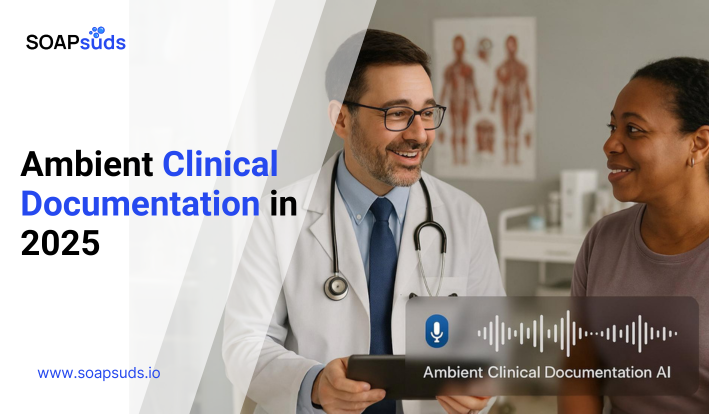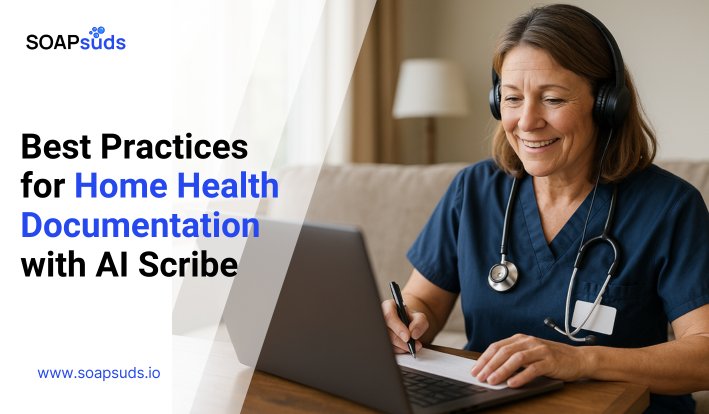How AI Supports Physician Workflows for Improved Patient Care
SOAPsuds team
Published: 1/22/2025
SOAPsuds team
Published: 1/22/2025

In the United States, one in five people speaks a language other than English at...

In recent years, paperwork and documentation have steadily increased for medical professionals. Too many administrative...

HIPAA-aligned AI note tools are changing how clinicians create documentation, allowing notes to be produced

Ambient medical scribe AI is quickly becoming one of the most discussed tools in healthcare.

Ambient clinical documentation is quietly changing how healthcare works. It acts like an unseen helper

Clinical documentation with AI Scribes plays a key role in meeting regulations, maintaining accurate billing
Clinical Notes
SOAP notes
DAP notes
AI medical notes